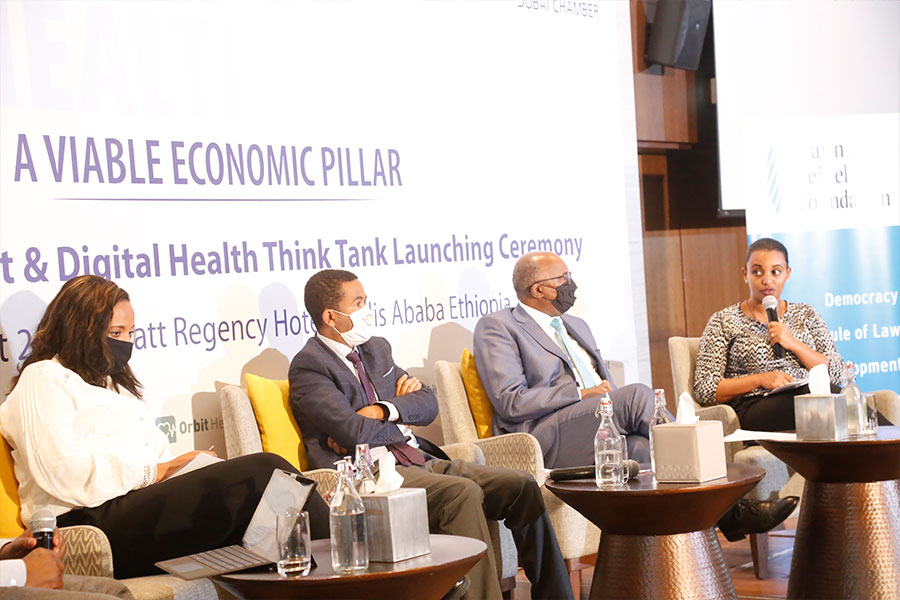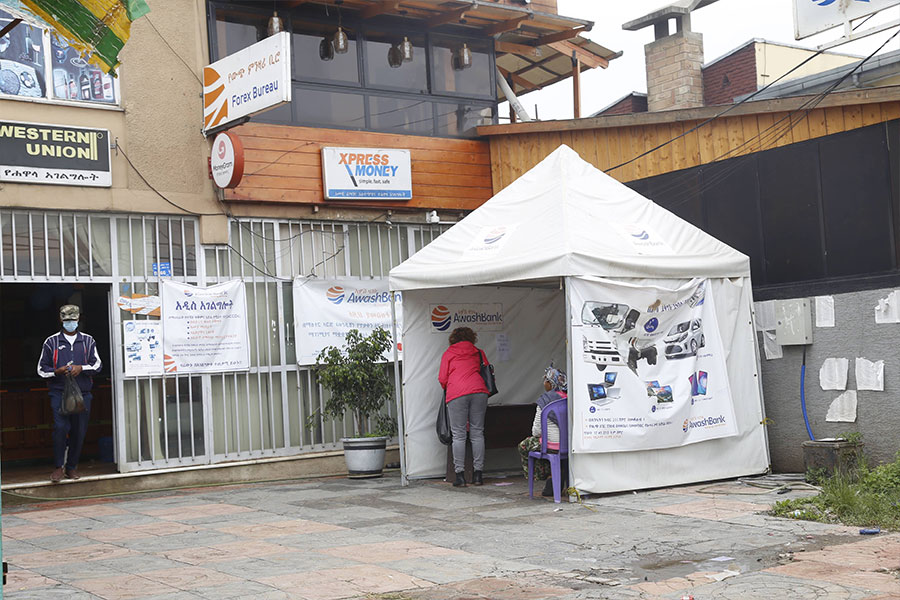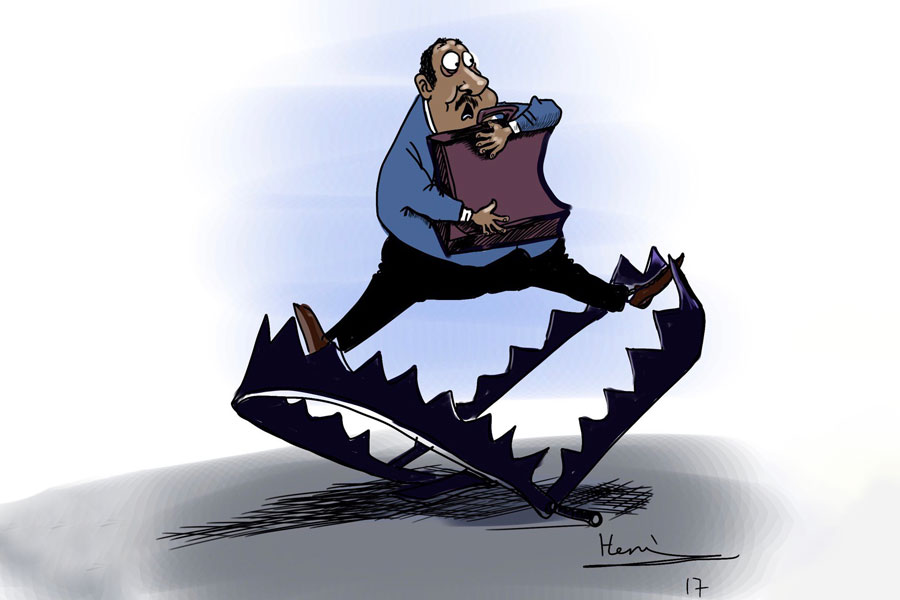
Commentaries | Apr 19,2025
May 29 , 2021
By Asegid Getachew
Competition has increasingly come to mark the business environment in Ethiopia. While this is commendable and should be lauded, unscrupulous business practices could end up worsening the uncompetitiveness of the economy, writes Asegid Getachew (asewoldeam@gmail.com), an assistant professor and research scholar at Andhra University.
A healthy dose of competition has always been the engine that kept businesses moving. In their pursuit to provide better products and service experiences to their customers, businesses continuously develop new features that enable them to excel in the market. Fair competition in the market and its multiple benefits to businesses also come with a package of additional benefits to customers. For instance, customers may have access to more improved products and services with a better quality that makes life easier. They may also acquire more improved, efficient offerings at a relatively lower price.
This is precisely how the telecom industry could be impacted following the entry of a new player - with another one on the way - once it starts selling its services. It automatically imbues consumers with sovereignty, allowing them to determine what products come into the market and which ones do not.
However, competition may not always be healthy. In some instances, businesses might fully commit themselves to an all-out war to crush one another. Such competition is entirely based on “weak point analysis” where market players engage in the arduous and sometimes callous activity of seeking out the weakest link of their opponent, with the intention of taking down a potential threat.
Weak point analysis is known by a very famous Greek mythology that involves the character Achilles. He is considered a heroic warrior that always destroyed his enemies. The secret to his bravery and heroism comes from the fact that his mother, from her desire to make him immortal in his early childhood, dipped him in the waters of the “River Styx”. Except for the heel by which she held him, his entire body became an impervious human-made armour. An opponent who came to know his weak spot finally took him down by shooting an arrow at heel. This mythology is the source of the proverbial “Achilles Heels.”
The moral of the Achilles Heel story is that despite the myriad of strengths that one possesses, if competition is based on weakest link analysis, there is always a week spot that can lead to the annihilation of an opponent.
A very practical example of competition based on the concept of “Achilles Heels” was the infamous “Cola–War” between Coca Cola and Pepsi in the 1980s. These two beverage giants were engaged in a competition of blind taste tests and huge advertising expenditures. The climax of the war came when Coca-cola changed “Merchandise 7x,” its secretive formula in 1985 to abandon it in favour of a “New Coke.” The formula has been behind the success of the coca-cola brand for almost 100 years. The result could have been destructive had it not been for loyal customers who vigorously protested for the return of the old taste. Finally, the company retracted its new formula and kept the lucrative old coke.
A competition based on weak point analysis has the main purpose of focusing on the weaknesses of competitors and capitalising on that to take them down. The downside of such completion is that it may lead to the emergence of a monopoly that vigorously tries to control the market all by itself, robbing customers of new benefits from alternative products and services.
Technological advancement and change in consumer taste are also marking competition in the Ethiopian business environment. This is evident from competitions after opening up in industries such as banking and brewery. These businesses should make sure that they compete based on the potential new product and service features they bring to the market and not by capitalising on the weak links of market players.
PUBLISHED ON
May 29,2021 [ VOL
22 , NO
1100]


Commentaries | Apr 19,2025

Radar | Aug 28,2021

Radar | Jun 14,2020

Editorial | May 31,2020

Verbatim | Dec 17,2022

Life Matters | Dec 25,2018

Agenda | Jul 18,2021

Editorial | Oct 20,2024

Advertorials | Nov 26,2024

My Opinion | Sep 10,2021

Photo Gallery | 176016 Views | May 06,2019

Photo Gallery | 166230 Views | Apr 26,2019

Photo Gallery | 156655 Views | Oct 06,2021

My Opinion | 136867 Views | Aug 14,2021

Dec 22 , 2024 . By TIZITA SHEWAFERAW
Charged with transforming colossal state-owned enterprises into modern and competitiv...

Aug 18 , 2024 . By AKSAH ITALO
Although predictable Yonas Zerihun's job in the ride-hailing service is not immune to...

Jul 28 , 2024 . By TIZITA SHEWAFERAW
Unhabitual, perhaps too many, Samuel Gebreyohannes, 38, used to occasionally enjoy a couple of beers at breakfast. However, he recently swit...

Jul 13 , 2024 . By AKSAH ITALO
Investors who rely on tractors, trucks, and field vehicles for commuting, transporting commodities, and f...

Oct 18 , 2025
The political establishment, notably the ruling party and its top brass, has become p...

Oct 11 , 2025
Ladislas Farago, a roving Associated Press (AP) correspondent, arrived in Ethiopia in...

Oct 4 , 2025
Eyob Tekalegn (PhD) had been in the Governor's chair for only weeks when, on Septembe...

Sep 27 , 2025
Four years into an experiment with “shock therapy” in education, the national moo...

Oct 18 , 2025 . By NAHOM AYELE
In a sweeping reform that upends nearly a decade of uniform health insurance contribu...

A bill that could transform the nutritional state sits in a limbo, even as the countr...

Oct 18 , 2025 . By SURAFEL MULUGETA
A long-planned directive to curb carbon emissions from fossil-fuel-powered vehicles h...

Oct 18 , 2025 . By BEZAWIT HULUAGER
Transaction advisors working with companies that hold over a quarter of a billion Bir...